Solar power system is a reliable and clean source of electricity that can suit a wide range of applications such as residence, industry, agriculture, livestock etc.
Major solar power systems includes components that are selected according to system type. Site locations and applications. The major component for solar power systems are:
• Solar panel/PV module
• Charge controllers
• Battery bank
• Inverter
• Auxiliary energy sources
• Load (appliances)
THE PHOTOVOLTAIC MODULE
The photovoltaic module or solar panel is a collection of individual silicon cells that generate electricity from sunlight. The basic unit of the photovoltaic module is a solar cell which usually consist of one or two layers of silicon based semiconductor wafers.
When struck by photons in sunlight, the solar cell generates an electrical charge due to photoelectric effect. The flow of these electrons moves in a steady electric current from one side of the cell to another. The solar panel comprise many, smaller units of photovoltaic cells.
SOLAR CHARGE CONTROLLERS
Solar charge controllers is an important component of the solar power system placed in-between the solar array and the battery bank to regulate the charging (current & voltage) of batteries through solar. Basically, it is not possibly go safely use solar energy for charging batteries without a charge controller.
The most basic charge controllers monitors the battery voltage and opens the circuit, stopping the charge when the battery voltage rises to a certain level. Older charge controllers used a mechanical relay to open and close the circuit, stopping or starting power going to the batteries. The maximum power point tracking (MPPT) and the pulse width modulation (PWM) are the new technologies used in modern charge controllers.
The solar charge controllers regulates voltage and current from solar array, charges the battery, prevents battery from overcharging and also performs control over discharge.
The modern technology of solar charge controllers also functions in preventing reverse-current flow. At night, when solar panels are not generating electricity, electricity can actually flow backwards from the batteries through solar panels. The charge controllers can detect when no energy is coming from the solar panel and open the circuit, disconnecting the solar panels from the batteries and stopping reverse current flow.
THE INVRTER SYSTEM
The primary job of an inverter is to convert the direct current from the battery bank or solar panels to alternating current power needed for most appliances. An inverter works by taking the constant dc voltage and changing it to a blocky wave (modified sine wave) or a sine wave that goes above and below 0volts.
During the inception of inverter technology, the most common way to do this was to make a voltage go straight ,up and down, creating a blocky signal called the modified sine wave. Technology advancement however has helped with the production of pure sine wave inverters which most appliances are engineered to work best with.
A modified sine wave inverter generally contains higher harmonic distortion which makes appliances run hotter, less efficient, consuming up to 30% more energy than with pure sine wave inverters. A modified sine wave will often cause a buzz to be heard from audio devices and sometimes other appliances like ceiling fans.
Modified sine wave inverters can be used for simple systems that do not have any delicate electronics or audio equipment that may pick up the choppy wave and produce a hum. The main difference between pure sine wave and modified sine wave inverter is that the former produces a better and cleaner current. They are more expensive, but for good reason.
BATTERY BANK
Battery bank stores current electricity that is produced from solar array for usage when sunlight is not visible, night-time or other purposes. Deep cycle batteries are the batteries commonly used and suitable for solar-inverter because of the ability to be deeply discharged and recharged.
The solar array, charge controller, dc cables, battery bank and the inverter are the major component in solar power system. The solar array is an essential component that converts sunlight directly into dc electricity which charges the battery. The charge controller regulates voltage and current from solar arrays, charges the battery, prevents battery from overcharging and also performs control over discharges. The solar charge controller is typically rated against amperage and voltage capacities. The solar charge controller must have enough capacity to handle the current from solar array.
The battery bank stores current electricity that is produced from the solar array for usage when sunlight is not visible, for overnight use and other purposes. The battery is designed to be large enough to store energy to operate the appliances at night and cloudy days.
The inverter is also a critical component in the solar power system that converts dc power output of solar array into ac for ac appliances. Most inverter also serves as a charger in which it takes power input from the auxiliary energy sources, converts it to dc to complement solar array charge to the battery. The inverter is accurately designed to handle the total amount of loads to be connected and the inverter must have the same nominal voltage as the battery bank. The inverter system must be large enough to handle the total amount of Watt (power) to be used at one time. The inverter size should be 25% - 30% bigger than the total power of appliances. In a case of appliance type of motor or compressor, the inverter is sized to be minimum 2-times the capacity of the appliances in order to handle surge current during starting.
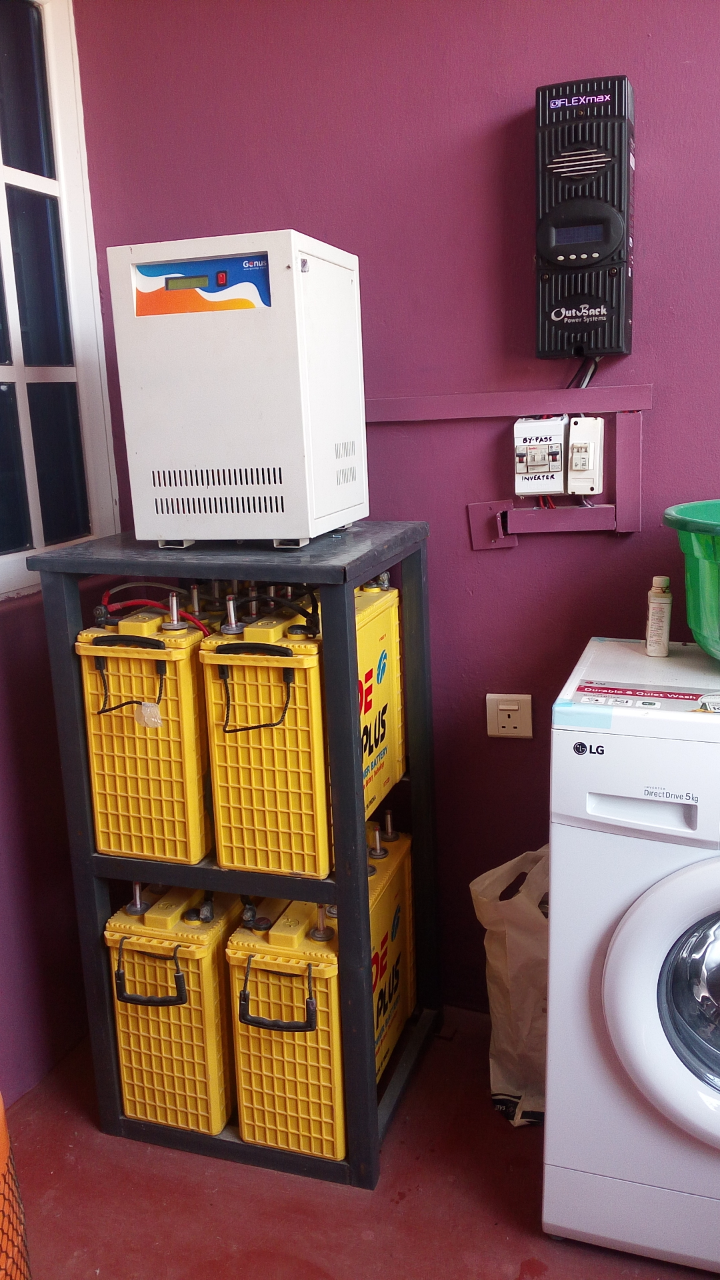
** References**
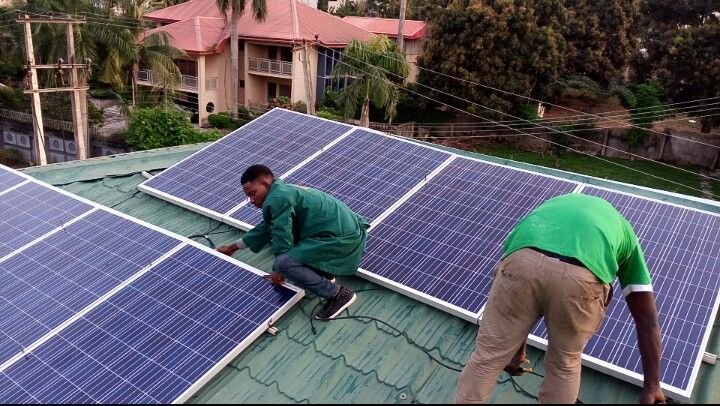
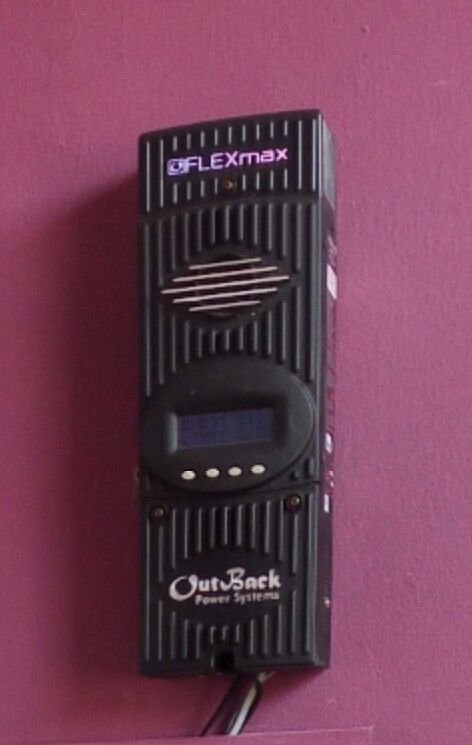
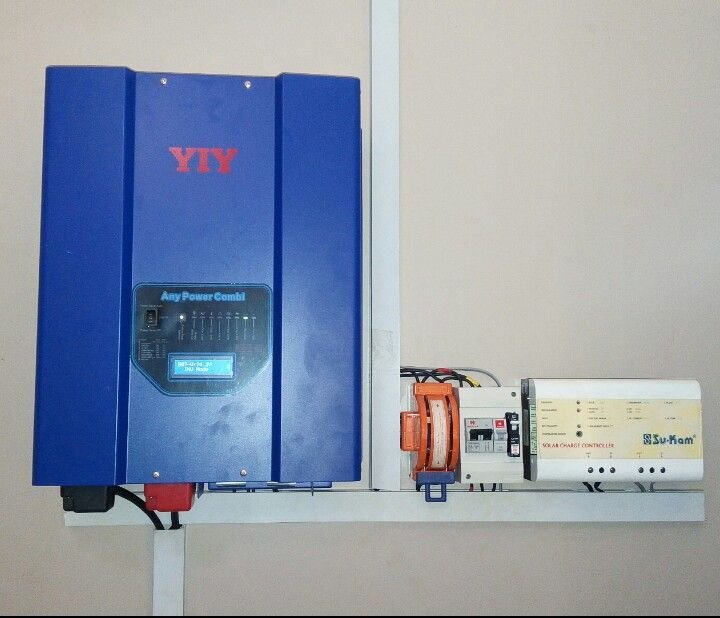
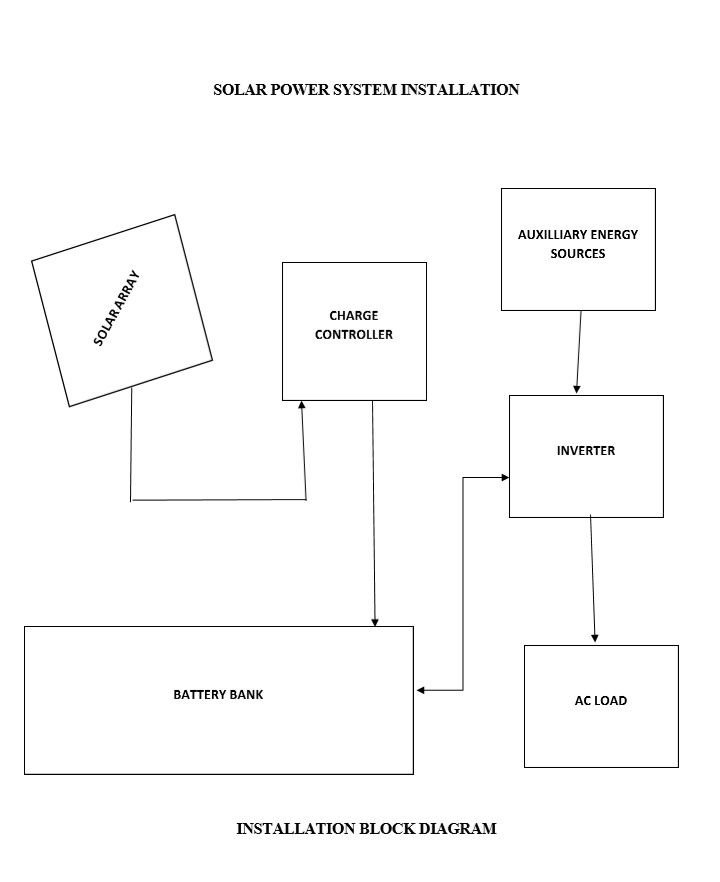
@ocd @originalcontent
Content edited and corrected! Thanks
Hi! I am a robot. I just upvoted you! I found similar content that readers might be interested in:
https://sites.google.com/site/reeetech/inverter/solar-charge-controllers
FUck off cheetah!!
Nice it's a good work
Thanks